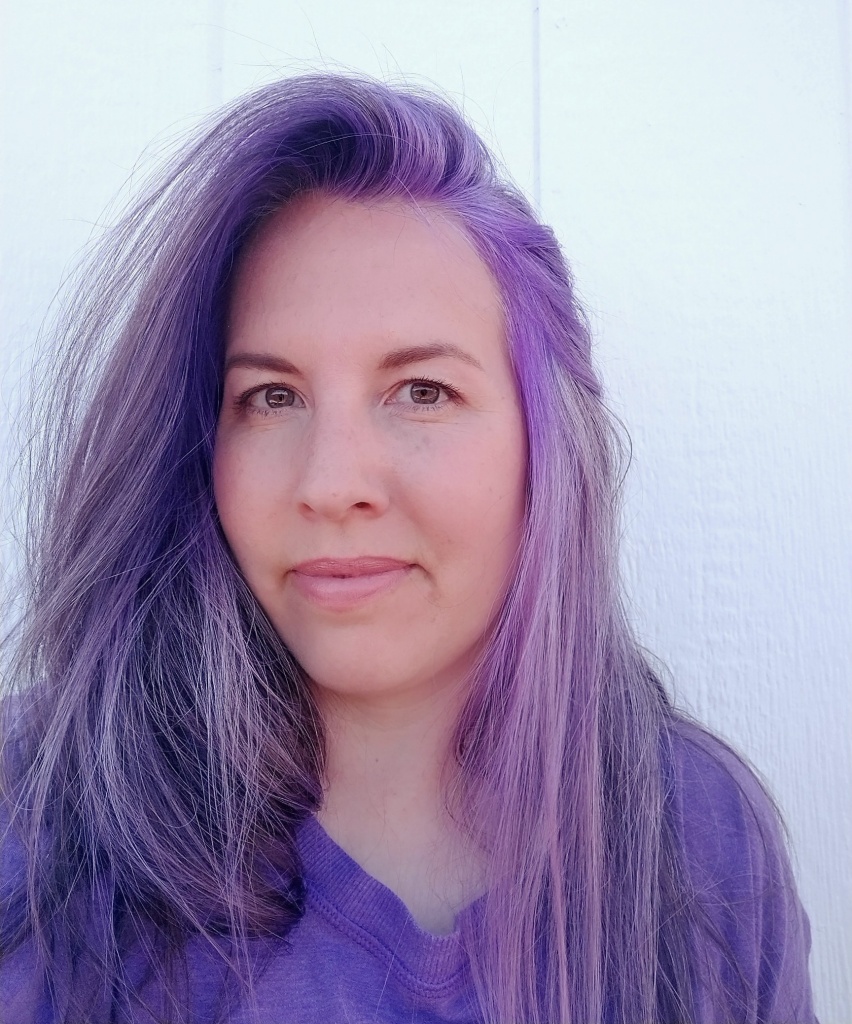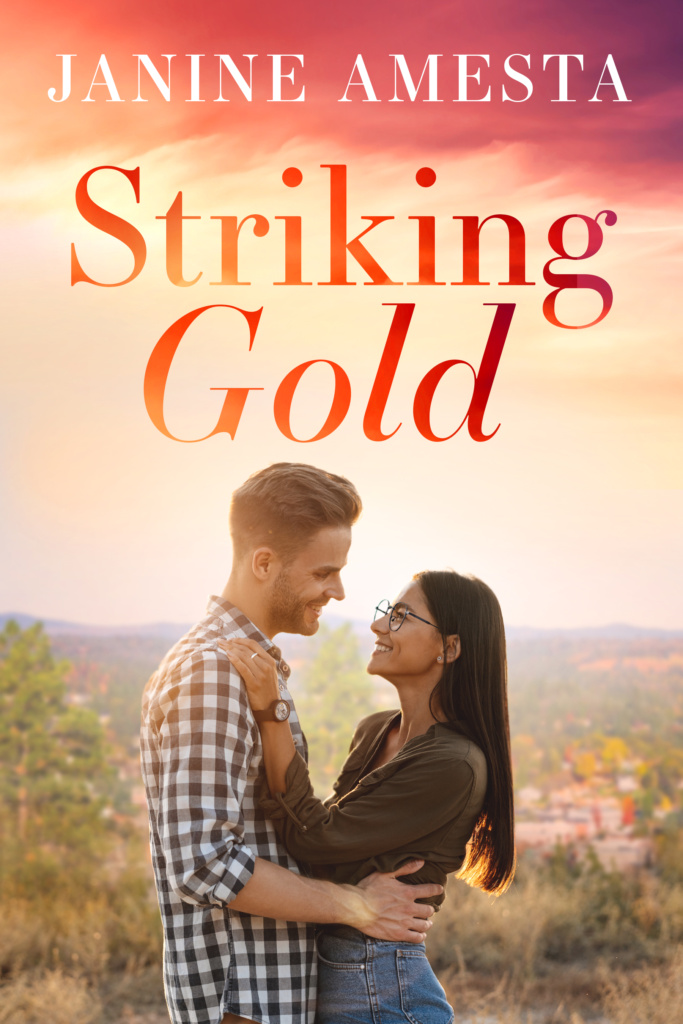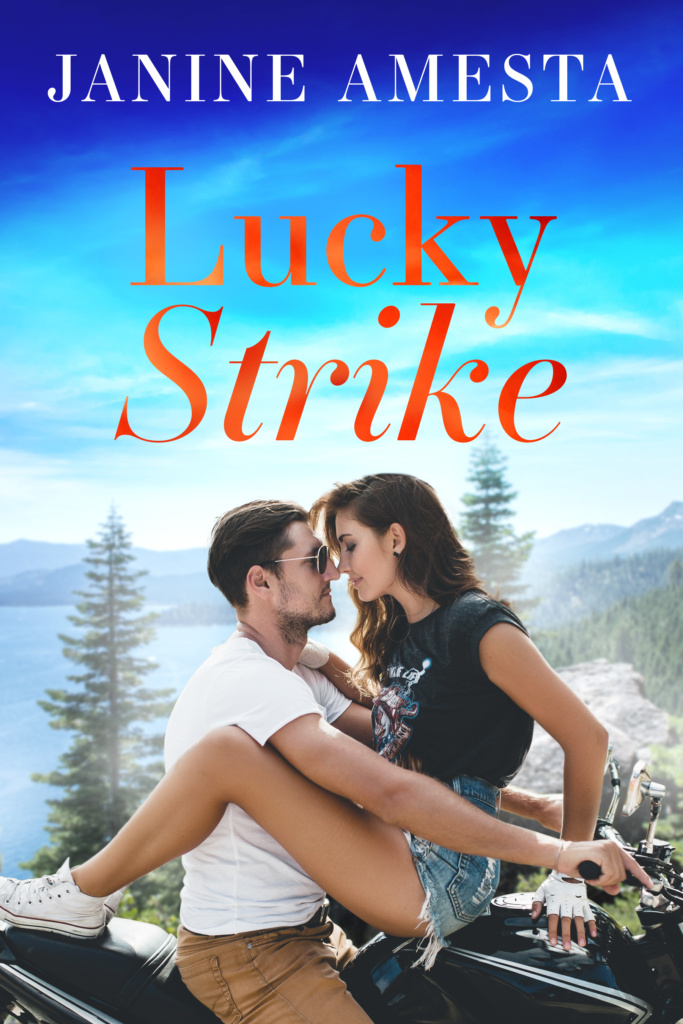 Author Janine Amesta gave us a chance to catch up with what she’s been up to and ask a few questions about finding her writing inspiration, connecting with her characters, and what it felt like when she landed her first publishing contract with Tule!
Author Janine Amesta gave us a chance to catch up with what she’s been up to and ask a few questions about finding her writing inspiration, connecting with her characters, and what it felt like when she landed her first publishing contract with Tule!
Moving from California to the high desert of Oregon must have been quite a change. How has this transition influenced your writing and creativity?
It was not only a location change but a lifestyle change as well. I’d been living in Los Angeles working in the film industry for awhile. So I’d gotten used to being in a large city with lots of people and things to do and then I found myself in an area that’s very outdoorsy with lots of rugged terrain and places to hike to. I loved living in LA but I think I was transitioning to a new phase where I kind of enjoyed being a bit more secluded from a busy world. But it was definitely an adjustment because I moved to a new area without any connections, no family and no friends…except the one who I had come with. This means that I got a lot of time to think and I started writing again. Maybe it was a way to make my life feel fuller because now I was wrapped up in the lives of my new imaginary friends: my characters. They became as dear to me as anyone.
Can you share the story behind your first published novel with Tule Publishing? How did that partnership come about?
 My debut, Striking Gold, was actually the fourth novel I had written. The other three are even in the same universe but still unpublished. I remember when I finished Striking Gold, I had told my husband that THIS story was special, that it would be the one to get me an agent. And I was right! Of course, I didn’t predict that it would also land me a publisher. I was afraid to hope as high as that. No one was more thrilled than me when I got an email from my agent that Tule had read my book and loved it. Nothing feels more amazing than for other people to see your story, connect with it, and feel that it’s something special too. Ross and Mia’s story will always be characters that will have a special place in my heart. I wrote it because I always wanted to do my own version of Jane Austen’s Persuasion in a location that I adore, which is Placerville, Ca.
My debut, Striking Gold, was actually the fourth novel I had written. The other three are even in the same universe but still unpublished. I remember when I finished Striking Gold, I had told my husband that THIS story was special, that it would be the one to get me an agent. And I was right! Of course, I didn’t predict that it would also land me a publisher. I was afraid to hope as high as that. No one was more thrilled than me when I got an email from my agent that Tule had read my book and loved it. Nothing feels more amazing than for other people to see your story, connect with it, and feel that it’s something special too. Ross and Mia’s story will always be characters that will have a special place in my heart. I wrote it because I always wanted to do my own version of Jane Austen’s Persuasion in a location that I adore, which is Placerville, Ca.
You studied screenwriting in college, but your thrillers ended up with too much flirty banter. How did this unique blend of thriller and romance shape your style as a romance author for Tule?
I’m sure I was annoying in my early screenwriting/filmmaking days because I wanted to be very serious with serious taste in movies. And, in my mind, that meant I was writing gritty thrillers and not romances. But I’ve always been a person who’s liked really snappy dialogue and you can have this regardless of the genre. And it’s true that maybe my focus was more on the banter because that’s where I was having fun. I like writing scenes where two characters are really connecting and playing off each other. When I started writing again, after moving to Oregon, I decided that I was only going to write what was fun for me and it ended up being romance. But I still take a lot of what I learned from my screenwiting (and also video editing) days in crafting a story, putting together scenes as I would a movie. Some people think writing romance is easy and fluffy but it’s really not easier than any other genre. And like writing a thriller, you still need to develop tension either between the characters or in the plot. This is building up anticipation and you want to do that so that when a happy moment does happen it feels rewarding to the readers.
Your cat, Hitchcock, has a very intriguing name. Does he influence any of your characters or plots?
Hitchcock the cat is named after the famed director, back from when I watched a lot of his movies during my gritty thriller days. When I was still living in L.A., this cat had been abandoned by his previous family when they moved away and then he just started coming to my place, making himself at home. This is definitely a situation where he adopted us, and when we moved to Oregon I had to take him with me. I think because of Hitchcock, I love to write storylines about people who didn’t intend to get a pet, but find themselves with one anyways. It’s a good way for characters to connect to something, even if they have trouble connecting to other people.
As a master at jigsaw puzzles, do you find that this skill translates into your writing process, particularly in building your character relationships?
Hmm, I’ve never really considered it. Maybe. I’ve always enjoyed doing jigsaw puzzles. I think the biggest thing you need to do is pay attention to the details, especially for difficult puzzles. Maybe you’re looking for the one piece that has the smallest speck of yellow on it— like there’s the larger picture, but you’re trying to pay attention to the smallest details for fitting pieces together. When I create characters, I want them to feel as real as possible, so developing little details is important. That one piece with a little speck of yellow may seem insignificant now but it could be quite significant later. It could explain why a character acts the way they do. It can trigger a fight. It could change everything.
Embroidery is a detailed and patient craft. How does this hobby reflect or contrast with your approach to writing?
Writing is so labor intensive for my brain. It can seem like I’m just sitting and staring off into space, but there’s a lot of thought manpower going on. After a long writing session, I can be exhausted. Hand embroidery, like jigsaw puzzles, is a way that I can let my mind settle. It relaxes me and I don’t have to think about anything else. And it’s usually during these periods that I might be struck with some kind of inspiration or a way to solve a writing problem. But even if it doesn’t, that’s okay too. I think it’s important to let your brain rest and not be working it all the time. Sometimes you want to be creative in other ways and it’s good to have a hobby.
Critiquing bad movies on Twitter sounds like a fun pastime. How does engaging with different storytelling styles and tropes in movies influence your own writing?
I think because of my filmmaking background, I’ve always believed that good storytelling is good storytelling, regardless of the genre. And I’ve always had a varied and eclectic taste in what I’ll watch…which is pretty much anything and everything, even movies that are deemed “bad.” So I’ll watch romance or horror or documentaries or science fiction, old classics and new movies. Sometimes I feel like I’ve seen most movies out there, and I think it’s important to try other genres because it makes you well-rounded. And what you realize is that all genres have tropes and some of these tropes make genres more similar than different. There’s no rules that say you can’t take those different tropes in other genres and add it to romance. In fact, romance might be the most flexible genre because as long as the characters get together at the end, you can do anything else. You can put the characters through the wringer, you can experiment. All that matters is that you give it a happy ending and, luckily, there’s a lot of ways to get there.
How do you balance creating moody, suspenseful atmospheres with lighter, flirtatious dialogue in your novels?
 I wouldn’t necessarily describe my romance novels as suspenseful but the plot can sometimes get dark, heavy, or emotional. And it can be hard to balance that as I don’t like to go heavy for too long. I always want to give this sense that there’s light mixed in with the dark. Usually, the darkness is the situation and the lightness is the characters. They help balance each other out. And even though I like the lighter parts and the flirty banter, it’s usually when the characters are working through a difficult part, that they’re growing as a character or their relationship is developing. I like to see romance as a cake. You can’t have all frosting. You need the cake for substance and you need the frosting to give it extra flavor. In a book I’m currently writing, a character is going through a heavy moment of grief and it’s easy to fall into a sad trap. But then she remembers something ridiculous and suddenly the moment becomes really light and funny. As someone who is very familiar with grief myself, it feels very true with how it is, where one moment you’re crying and the next you’re laughing at something silly. I think it’s what makes us human and I want my stories to feel the same way.
I wouldn’t necessarily describe my romance novels as suspenseful but the plot can sometimes get dark, heavy, or emotional. And it can be hard to balance that as I don’t like to go heavy for too long. I always want to give this sense that there’s light mixed in with the dark. Usually, the darkness is the situation and the lightness is the characters. They help balance each other out. And even though I like the lighter parts and the flirty banter, it’s usually when the characters are working through a difficult part, that they’re growing as a character or their relationship is developing. I like to see romance as a cake. You can’t have all frosting. You need the cake for substance and you need the frosting to give it extra flavor. In a book I’m currently writing, a character is going through a heavy moment of grief and it’s easy to fall into a sad trap. But then she remembers something ridiculous and suddenly the moment becomes really light and funny. As someone who is very familiar with grief myself, it feels very true with how it is, where one moment you’re crying and the next you’re laughing at something silly. I think it’s what makes us human and I want my stories to feel the same way.
What’s the most rewarding feedback you’ve received from a reader about your romances, and how did it impact your work?
Hmm. I actually haven’t heard from too many readers. I’m always open to hearing from more! I think the comment I enjoy the most is that my book’s humor catches people off guard, like they don’t expect things to be as funny as they are. I’ve grown up in a family that has a very dry sense of humor so I think this comes across in my story telling. I can write the most ridiculous things in the most serious tone while adding a subtle wink. People that connect with that are my kind of readers and it always makes me happy when they find me. All my romance books tend to have this same kind of vibe because it’s what I enjoy.
What advice would you give to aspiring writers who are trying to blend different genres or elements in their stories?
You’re not going to know if something works, unless you try it and that means actually writing it. And there needs to be a reason for it so it’s best to figure out the story you want to tell and who your characters are that will help you tell it. Character development is always important, and the more developed and detailed they are, the more they’ll feel specific to the story. It should feel like only these characters would ever be in this particular story because they’re so connected to it. And even if you try and decide it doesn’t work, that’s okay too. At least you’ll learn for the next time. Or you can be like me and just write for your own amusement.






By posting a comment, you consent to have your personally identifiable information collected and used in accordance with our privacy policy.